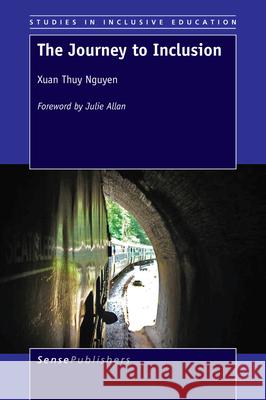The Journey to Inclusion » książka
The Journey to Inclusion
ISBN-13: 9789463003025 / Angielski / Miękka / 2015 / 210 str.
The Journey to Inclusion
ISBN-13: 9789463003025 / Angielski / Miękka / 2015 / 210 str.
(netto: 178,07 VAT: 5%)
Najniższa cena z 30 dni: 179,73
ok. 22 dni roboczych.
Darmowa dostawa!
This book offers insight on the politics of inclusion in Vietnam through a Foucauldian and post-colonial perspective on disability and education. Drawing on a socio-historical analysis of the inclusion of disabled people in Vietnam in the twenty-first century, the book guides readers through a 'history of the present.' By reflecting on the treatment of disabled people in Vietnamese social history, the book argues that this journey to inclusion calls for critical reflections on the challenges and possibilities for policies to transform exclusion for disabled people. The book unveils the problematics of social and educational institutions in governing disability and difference through a critical reflection on discourses and power in the global and local juncture, in relation to its engagement with disability in the global South. The intersection between the global politics of disability rights and development and the local politics of inclusion in Vietnam shapes the cultural politics of education. The ways inclusive education is historically constructed, within this socio-historical condition, reflects the challenges of inclusive thought and action for transforming injustice. Going beyond 'deconstructive politics, ' The Journey to Inclusion argues for a re-positioning of the relationships between the global North and South as an alternative approach to inclusion. It suggests that critical research must construct a politics of engagement with subjugated voices and representations in transnational, national, and local contexts. A reflexive, critical, and inclusive dialogue that engages with Southern knowledge offers a political platform for reframing justice in the twenty-first century.
This book offers insight on the politics of inclusion in Vietnam through a Foucauldian and post-colonial perspective on disability and education. Drawing on a socio-historical analysis of the inclusion of disabled people in Vietnam in the twenty-first century, the book guides readers through a history of the present. By reflecting on the treatment of disabled people in Vietnamese social history, the book argues that this journey to inclusion calls for critical reflections on the challenges and possibilities for policies to transform exclusion for disabled people. The book unveils the problematics of social and educational institutions in governing disability and difference through a critical reflection on discourses and power in the global and local juncture, in relation to its engagement with disability in the global South. The intersection between the global politics of disability rights and development and the local politics of inclusion in Vietnam shapes the cultural politics of education. The ways inclusive education is historically constructed, within this socio-historical condition, reflects the challenges of inclusive thought and action for transforming injustice. Going beyond deconstructive politics, The Journey to Inclusion argues for a re-positioning of the relationships between the global North and South as an alternative approach to inclusion. It suggests that critical research must construct a politics of engagement with subjugated voices and representations in transnational, national, and local contexts. A reflexive, critical, and inclusive dialogue that engages with Southern knowledge offers a political platform for reframing justice in the twenty-first century.











